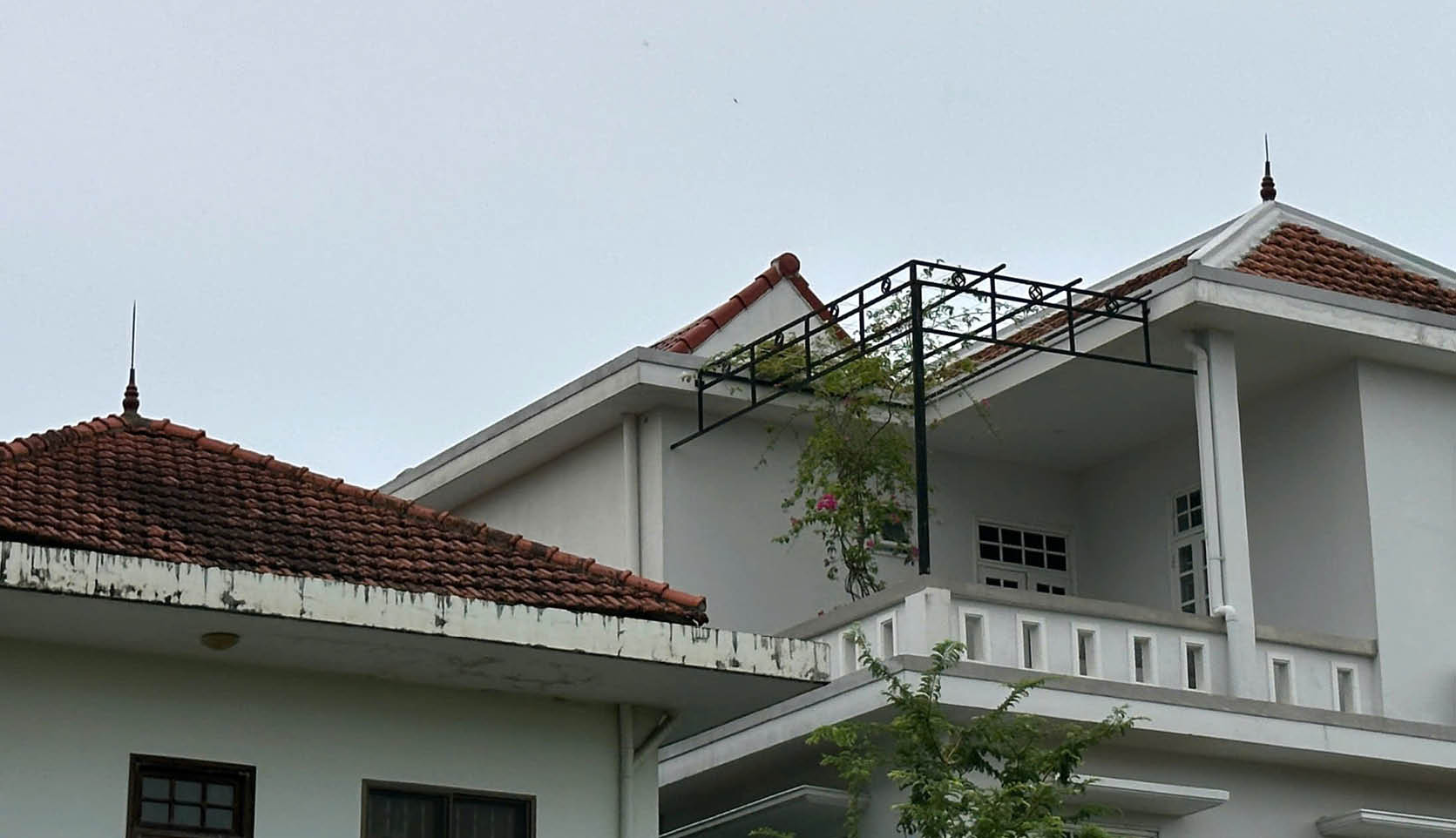 |
| No one can predict exactly when and where lightning will strike, but it is possible to take protective measures in advance. |
Understand correctly to avoid subjectivity
Many households today still believe that low-rise houses or houses located in densely populated areas will have less risk of being struck by lightning. Some people also think that their house can "borrow" the protection zone from neighboring lightning rods, without having to invest separately. However, according to experts in the fields of meteorology and electricity, this is a wrong view, which can easily lead to unpredictable consequences every time a thunderstorm occurs.
Lightning is a natural phenomenon that does not follow any fixed rules. It not only strikes high-rise buildings, but can also “attack” low-rise houses, low-lying houses or houses interspersed in residential areas. Many lightning accidents have occurred in seemingly safe areas, causing great damage to property and people.
According to statistics from the Emergency Department of Hue Central Hospital, on average, this department receives about 5-10 cases of lightning strikes each year. Lightning strikes are increasing not only during the rainy and stormy season, but also during summer thunderstorms.
Without being struck directly by lightning, just a nearby lightning strike can create a strong induced current, spreading through wiring systems such as electricity, cable TV, internet, etc., causing short circuits, damaging electronic devices in the house, and burning electric poles right next to houses. Lightning discharge can also cause fires, threatening human life.
Mr. Nguyen Van Hung, Director of the Hue City Hydrometeorological Center, said: With erratic weather and frequent thunderstorms, installing HTCS is considered a mandatory safety solution for civil works. Households should pay special attention if their houses are located in areas where thunderstorms often occur and lightning strikes have been recorded; houses with a height of two floors or higher than surrounding structures; houses near electric poles, antennas, old trees or power transmission works should invest in installing HTCS.
These are “hot spots” that are easily targeted by lightning during thunderstorms. Every household should proactively equip themselves with HTCS early and most appropriately, right from the design or construction of the rough part of their house.
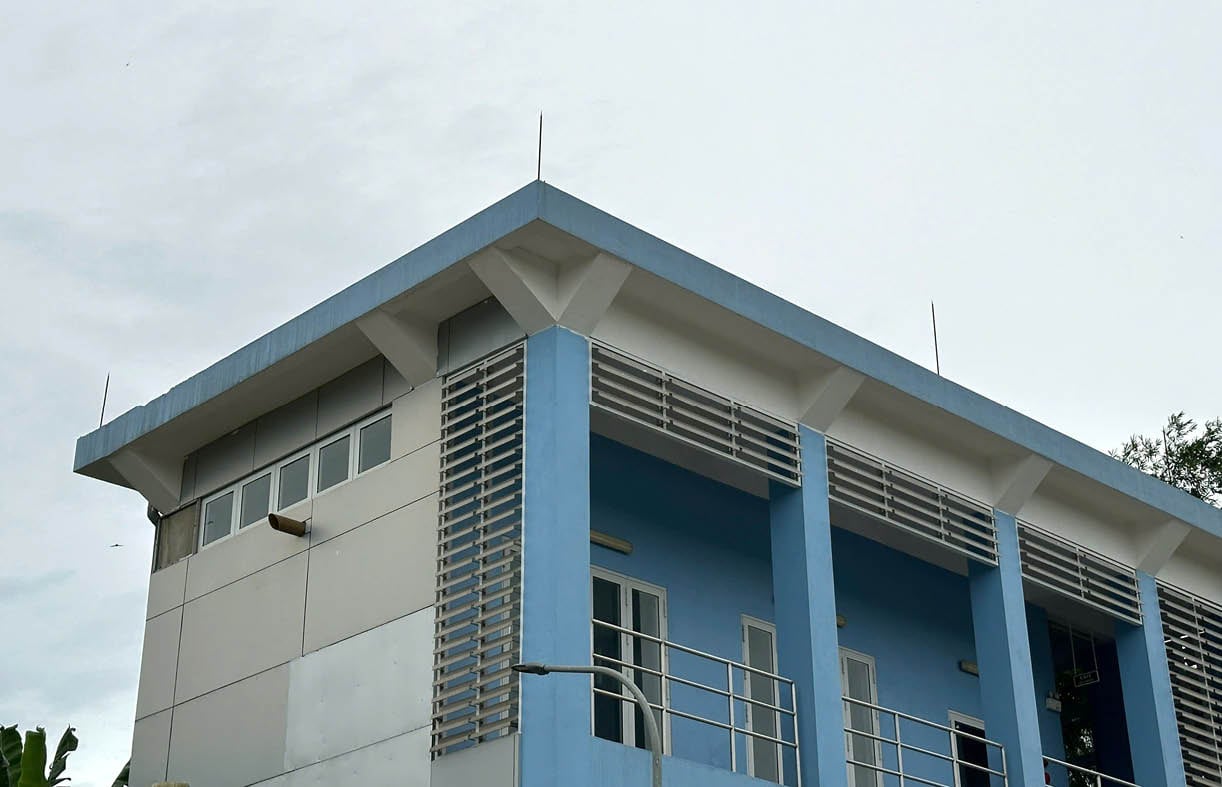 |
| Currently, on the market there are many types of lightning protection systems suitable for the scale of construction, from level four houses to villas and townhouses. |
Prevention is better than cure
Currently, on the market there are many types of HTCS suitable for each scale of construction, from level four houses to villas and townhouses. The equipment includes: Classic lightning rods, modern lightning rods, surge protection for each electrical device... Each solution has the ability to conduct electric charge to the ground safely, helping to comprehensively protect the electrical system and interior equipment. The investment cost of a basic HTCS is not too high, ranging from a few million to more than ten million VND depending on the scale and type of equipment. This is a reasonable investment to "buy" long-term safety for the family.
No one can predict exactly when and where lightning will strike, but it is entirely possible to prepare protective measures in advance. In addition to the solutions of the functional sector, the lightning protection system of each household is always a "shield" to protect people and property in the increasingly severe storm season like today. With just a timely decision, each family can avoid unnecessary damage. Proactively protecting against lightning today is to ensure peace for tomorrow.
| In addition to equipping HTCS, the simplest and most minimal thing people need to do is to regularly monitor weather forecasts to plan their work. When working in a certain area, pay attention to places where you can take shelter from the rain and avoid lightning safely. A safe place to avoid lightning is a building or office that has installed HTCS. When indoors, you should stand away from windows, doors, electrical appliances, avoid damp places; unplug electrical appliances before a thunderstorm occurs. |
Source: https://huengaynay.vn/kinh-te/lap-dat-he-thong-chong-set-giai-phap-an-toan-can-thiet-cho-moi-gia-dinh-156402.html




![[Photo] Cutting hills to make way for people to travel on route 14E that suffered landslides](https://vphoto.vietnam.vn/thumb/1200x675/vietnam/resource/IMAGE/2025/11/08/1762599969318_ndo_br_thiet-ke-chua-co-ten-2025-11-08t154639923-png.webp)





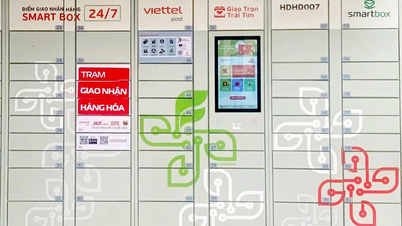

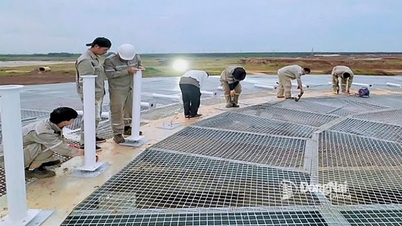

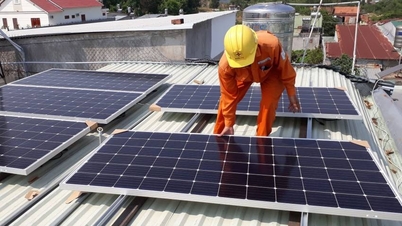












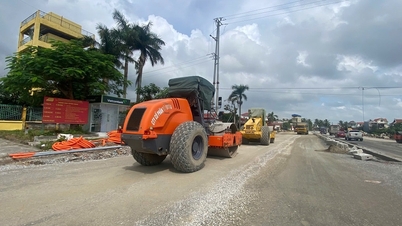









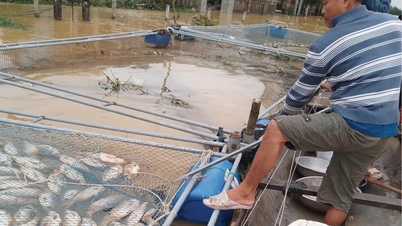








![[Video] Hue Monuments reopen to welcome visitors](https://vphoto.vietnam.vn/thumb/402x226/vietnam/resource/IMAGE/2025/11/05/1762301089171_dung01-05-43-09still013-jpg.webp)































































Comment (0)